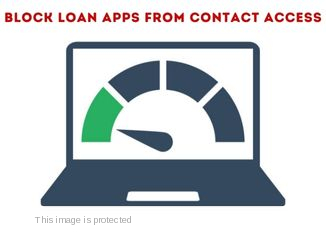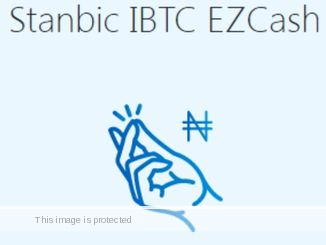New List of Money Lenders in Nigeria (Online and Private)
Do you want to know the list of individual, private, and quick online digital money lenders in Nigeria?
If YES, then this is the only post to read.
Getting started…
Money Lenders in Nigeria
A money lender is a person or organization that lends money to others at an interest rate.
There are many money lenders in Nigeria, both formal and informal.
A money lender plays an active role in lending to people with less access to banking activities, such as the unbanked or under-banked or in situations where borrowers do not have an excellent credit history.
Here is the list of money lenders in Nigeria:
1. Microfinance Banks
Microfinance banks are regulated financial institutions that provide small loans to low-income individuals and businesses.
They typically have lower interest rates than informal moneylenders, but they may also have stricter lending criteria.
Moniepoint is a financial technology company that provides loans to individuals and businesses in Nigeria.
The company offers a variety of loan products, including personal loans, business loans, and merchant loans.
Grow your business with flexible loans of up to ₦90m at low-interest rates.
Follow these steps to get a working capital loan:
- Confirm your eligibility for a loan by logging into your Moniepoint dashboard to see offers.
- Choose an offer that best matches your business needs.
- Moniepoint reviews your choice and pays the money to your account in 1-2 business days.
- Automatically repay the loan based on the agreed flexible repayment plan.
2. Commercial Banks
There are many banks in Nigeria that offer loans.
Here are some of the most popular ones:
- First Bank of Nigeria: First Bank is one of the oldest and largest banks in Nigeria. It offers a variety of loan products, including personal loans, business loans, and mortgage loans.
- United Bank for Africa (UBA): UBA is another large bank in Nigeria. It offers a wide range of loan products, including consumer loans, commercial loans, and agricultural loans.
- Guaranty Trust Bank (GTBank): GTBank is a popular choice for young professionals and entrepreneurs. It offers a variety of loan products, including personal loans, business loans, and student loans.
- Access Bank: Access Bank is a leading bank in Nigeria. It offers a variety of loan products, including personal loans, business loans, and mortgage loans.
- Stanbic IBTC Bank: Stanbic IBTC Bank is a subsidiary of Standard Bank Group. It offers a variety of loan products, including personal loans, business loans, and student loans.
- Zenith Bank: Zenith Bank is a leading bank in Nigeria. It offers a variety of loan products, including personal loans, business loans, and mortgage loans.
- Ecobank: Ecobank is a pan-African bank with operations in Nigeria. It offers a variety of loan products, including personal loans, business loans, and mortgage loans.
- Heritage Bank: Heritage Bank is a relatively new bank in Nigeria. It offers a variety of loan products, including personal loans, business loans, and mortgage loans.
- Union Bank of Nigeria: Union Bank is a leading bank in Nigeria. It offers a variety of loan products, including personal loans, business loans, and mortgage loans.
When choosing a bank for a loan, compare the interest rates, repayment terms, and fees of different lenders.
Understand the terms of the loan agreement before you sign anything.
Not all banks will approve you for a loan.
The lender will consider your credit history, income, and other factors when deciding.
If you cannot get a loan from a bank, you may get a loan from a microfinance bank or a non-governmental organization.
These organizations typically offer loans to people with low incomes or poor credit histories.
3. Registered Loan App
A registered loan app in Nigeria is a mobile lending app that has been licensed by the Central Bank of Nigeria (CBN).
This means that the app has met certain requirements, such as having a sound financial structure and being able to manage its risks effectively.
The application process for registered loan apps in Nigeria is typically quick and easy.
You will need to provide some basic information, such as your name, address, and phone number.
You may also need to provide proof of income and identification.
Once your application is approved, you will receive the money in your bank account within 24 hours.
Here are the benefits of using a registered loan app in Nigeria:
- The app is regulated by CBN, so it is a safe way to borrow money.
- The application process is quick and easy.
- The interest rates are typically lower than traditional banks.
- There are no hidden fees.
Here are the risks associated with using loan apps:
- The interest rates can be high, especially for short-term loans.
- There may be late payment fees.
- If you cannot repay the loan, you could damage your credit score.
Consider all the risks and benefits before you apply for a loan from a loan app.
Registered loan apps in Nigeria include Branch, FairMoney, Kuda, Carbon, and OKash.
If you are considering taking out a loan from a loan app, do your research and choose a reputable lender.
Understand the terms of the loan agreement before you sign anything.
4. Thrift Contribution
Thrift contribution is a common practice in Nigeria, where people pool their money together to save for a common goal.
This can be a financial goal, such as buying a house or starting a business, or it can be a social goal, such as helping a community member in need.
There are many ways to organize a thrift contribution in Nigeria.
One common way is to form a savings club.
Savings clubs are typically made up of friends, family, or neighbors who meet regularly to contribute money to a common pot.
The money in the pot is then used to fund the group’s goals.
Another common way to organize a thrift contribution in Nigeria is through a SUSU.
Susu collectors are informal money lenders who operate in local communities.
They collect small amounts of money from people regularly and then lend it out to others in need.
The interest rates charged by susu collectors are often high, but they are often more accessible than formal financial institutions.
5. Friends and Family
Borrowing money from friends and family is a common practice in Nigeria.
It can be a good option if you are confident that you will repay the loan and that you will not damage your relationship with the lender.
Here are some pros and cons of borrowing money from friends and family in Nigeria:
Pros:
- It can be easier to get approved for a loan from a friend or family member than from a financial institution.
- The interest rates are typically lower than from a financial institution.
- There is no need to go through a credit check.
- You may negotiate a flexible repayment schedule.
Cons:
- You could damage your relationship with the lender if you cannot repay the loan.
- The lender may expect you to repay the loan sooner than you would from a financial institution.
- There may be no documentation of the loan, which could make it difficult to enforce the terms of the loan if there is a dispute.
If you are considering borrowing money from a friend or family member, there are a few things you should do:
- Be clear about the purpose of the loan and how you plan to repay it.
- Set a repayment schedule and stick to it.
- Be willing to provide collateral, if possible.
- Be respectful of the lender’s time and money.
- Be grateful for the help.






